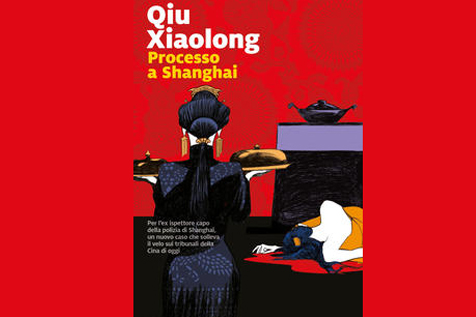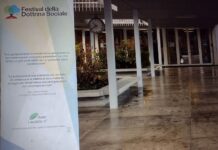A mystery between the streets of Shanghai..
Solving a murder case by referring to a similar case which happened a thousand years ago is not bad for former Inspector Chen Cao. Thanks to the twelve novels written by Qiu Xiaolong, we are led in the complex political-economic world of China, a world today at the center of world attention. With Chen we are still witnessing the solution of a crime.
It may be a former Red Guard colluded with the Triads that control the international trafficking of illegal immigrants. Or, of a Worker Model of the Nation, exemplary figure of Party propaganda. In other cases, it tells of pervasive censorship, of the political-administrative corruption, of massive industrial pollution or of the consequences of the Cultural Revolution.
..between the past and the present
In any case, we witness the sudden and sensational urban changes of Shanghai and of socialist China, made of taverns and kiosks transformed into clubs with Karaoke girls, Shikumene slums have became new workers’ villages. In addition, we enter the three-room apartments of the rich party leaders as in small rooms with large families or in the hotel’s luxurious Suite overlooking the Yellow Mountains.
It will then be possible to follow the enriching of rice meatballs with egg yolk or minced pork, the spread of the Celestial Eyes, the capillary system of surveillance cameras for increasingly invasive and strong government control. As a constant, here is Chen’s struggle with Homeland Security ready to steal from the inspector cases that certainly involve the high political spheres that are willing to do anything to hide their bad business.
Faraway, so close..
In this latest Trial in Shanghai, Marsilio 2020, there’s the beautiful association (aroused in Chen Cao from the book Poets and Assassins by the Dutch sinologist Robert Van Gulik), between two female characters a thousand years apart but with similar profiles and events: Xuanji, a poet of the Tang Dynasty, of which the poems are reported at the end of the book.
Despite being locked in a Confucian convent, she has various relationships with men of power. She is associated with Min Liuha, cook and also courtesan. For both the problem is “chasing too many things: poetry, celebrity, the idealistic passion, literary fame, romantic adventures, wealth, security… A simpler life would allow them to find a man who was truly capable of being good”.
So, a story built through rebounds between past and present, between poetry and investigation, between stories of sex and power, fear of control and spies, daily life in Shanghai. Qiu Xiaolong has the ability to make us live in this chaotic city and also smell the scent of black tea or the Precious Monkey variety, some fried buns stuffed with broth, some “fettuccine pasta” with anchovies. In this climate, she reflects, rebuilds, elaborates her plans, while the rival factions in the new “Forbidden City” plot their own.








